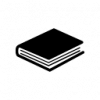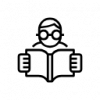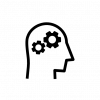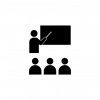I teach students about ethical and professional standards of behaviour in my discipline. For example, in my CLIM1001 course, I guide students through appropriate behaviour and practices such as how to write a peer review, appropriate behaviour in forum discussion debating what may be contentious or polemic issues and the ethical and reputational repercussions of plagiarism . My teaching team and I have attempted to bake standards of behaviour into our course by adding these behaviours into our marking rubric.This way appropriate behaviours become a requirement and not a secondary consideration.
While climate science doesn't involve any specific accreditation process, it does require certain standards of professional writing and quantitative skills. I help students to recognise these standards and support them with trying to meet these standards. My trial of Smarthinking in CLIM1001 is one example of helping students improve their professional writing. Another example is using Turnitin and implementing an originality minimum originality score in Turnitin to ensure that students are reviewing their work for plagiarism prior to final submission.
Undergraduate students often take part in conferences, usually as volunteers to gain some insight into the industry and research side of their discipline. Honours and postgraduate students often take part in workshops and conferences as part of their higher degree journey. I have helped to shape ethical and professional standards in my community at a national level around professional and inclusive behaviour. I wrote the Australian Meteorological and Oceanographic Society's events code of conduct which covers participants' behaviours and social media posts during AMOS run, endorsed or sponsored events. While the code of conduct document applies to everyone, it was very much created with the idea of protecting and nurturing our early career members and event attendees and to promote a professional culture of social inclusion and zero tolerance of inappropriate and criminal behaviours.
I was part of the AMOS executive team to coordinate and submit a statement to the Women in STEM decadal plan to the Australian Academy of Science and the Australian Academy of Technology and Engineering in October 2018 and the AMOS position statement on international cooperation and data sharing in July 2019, both of which provide standards which the society feels that our professional community and government must facilitate or meet.





